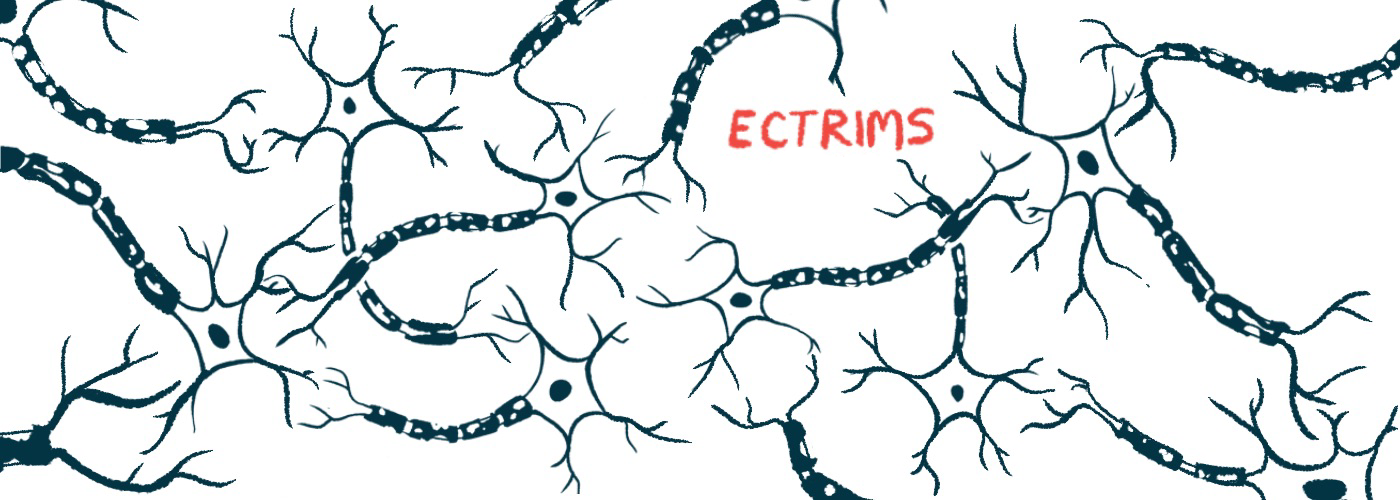#ECTRIMS2022 – New Analyses Say Ublituximab Is Superior to Aubagio
Ublituximab found to work better than approved therapy for relapsing MS

The experimental therapy ublituximab works better than the approved treatment Aubagio (teriflunomide) at easing disability independently of relapses, and at reducing overall disease activity, in adults with relapsing forms of multiple sclerosis (MS).
That’s according to exploratory analyses of pooled data from the identical ULTIMATE I (NCT03277261) and ULTIMATE II (NCT03277248) Phase 3 clinical trials, which compared the two MS therapies.
These findings add to previous ULTIMATE results showing that TG Therapeutics’ ublituximab outperformed Aubagio in lowering relapse rates and brain lesions.
“We believe the data continue to show an encouraging profile for ublituximab to treat patients with [relapsing MS], if approved,” Michael Weiss, TG Therapeutics’ chairman and CEO, said in a company press release.
TG Therapeutics filed for U.S. approval of ublituximab last year, and a regulatory decision is expected by December 28. The company also plans to file for a similar approval in Europe.
Treatments compared in ULTIMATE trials
Results from these and other additional exploratory analyses of the ULTIMATE trials were presented in five posters at the 38th Congress of the European Committee for Treatment and Research in Multiple Sclerosis (ECTRIMS), held Oct. 26–28, both virtually and in Amsterdam, Netherlands.
Ublituximab is an experimental antibody-based therapy that works by promoting the death of B-cells, a type of immune cell implicated in the abnormal immune attacks that drive neurodegeneration in MS. It is administered directly into the bloodstream (intravenously) through a one-hour infusion, every six months.
The ULTIMATE trials evaluated the safety and effectiveness of nearly two years of treatment with ublituximab against Aubagio, Sanofi’s approved oral MS therapy. The trials involved a total of 1,094 adults with active, relapsing forms of MS.
Top-line results showed that ublituximab treatment significantly reduced relapse rates and the number of brain lesions as compared with Aubagio.
Post hoc analyses, or those designed and carried out after a trial is completed, demonstrated that the experimental therapy also was associated with an increased chance of experiencing disability improvements — meaning less disability — among patients. Those given ublituximab also were more likely to achieve a three-parameter no evidence of disease activity (NEDA-3), defined as the absence of relapses, new brain lesions, and three-month confirmed disability worsening.
At ECTRIMS 2022, the poster presentations reported the results of a number of additional post hoc analyses.
In the poster “Ublituximab Treatment Is Associated With a Significant Proportion of Participants Achieving NEDA-4,” the researchers analyzed the proportion of ULTIMATE participants who achieved NEDA-4. This measure includes the same three parameters in NEDA-3, as well as annual brain shrinkage that’s less than a specific threshold.
“As brain atrophy is associated with both cognitive dysfunction and poorer outcomes, including long-term disability progression, an expanded definition of NEDA that incorporates brain atrophy (NEDA-4) … may provide a more comprehensive evaluation of disease activity and progression,” the researchers wrote.
A brain volume loss of 0.4% of higher per year “has been suggested as a cutoff value to define [disease-associated] brain atrophy in people with MS,” they noted.
Three different brain shrinkage thresholds were used in the analysis: 0.4%, 0.8%, and 1.2%. Also, NEDA-4 parameters at two years were compared with those at six months of treatment, instead of the study’s start, as six months would allow ublituximab to have an effect on disease outcomes, the team said.
Results showed that fewer patients on ublituximab than Aubagio experienced brain shrinkage exceeding each of the defined thresholds.
These differences failed to reach statistical significance. Still, the rate of brain shrinkage in the ublituximab group was much closer to that expected for healthy people than that reported for relapsing MS patients.
In addition, a significantly higher proportion of ublituximab-treated patients achieved NEDA-4 across all brain shrinkage thresholds. Specifically, 44.2% of ublituximab-treated patients versus 13.5% of Aubagio-treated patients achieved NEDA-4 with the 0.4% threshold.
The differences were larger at the other two thresholds: 68% of those on ublituximab versus 19% given Aubagio achieved NEDA-4 at the 0.8% threshold, while the rates were 71.9% versus 19.6% at the 1.2% threshold.
This meant that patients on ublituximab were five to 11 times more likely to meet NEDA-4 than those in the Aubagio group.
“In pooled post hoc analyses across a range of annual BVL thresholds, significantly more participants achieved NEDA-4 with ublituximab versus [Aubagio] in ULTIMATE I and II,” the researchers wrote.
Analyzing the 2 MS therapies
In another poster, this one titled “Disability Changes in the Absence of Relapse in the Phase 3 ULTIMATE I and II Studies of Ublituximab Versus Teriflunomide in Participants With Relapsing Multiple Sclerosis,” the researchers looked at disability outcomes specifically in the 473 ublituximab-treated and 406 Aubagio-treated participants who did not experience relapses during the trials.
This analysis was based on the fact that “long-term disability progression independent of relapse is common in patients with relapsing-remitting MS,” and that “approved anti-CD20 therapies are associated with a reduction in disability progression independent of relapse,” the researchers wrote.
Results showed that ublituximab treatment resulted in consistently greater improvements in disability, as assessed with reductions in the Expanded Disability Status Scale score, a measure of disability progression. The difference between groups reached statistical significance at the 48-, 84-, and 96-week assessments, reflecting a twofold greater improvement in disability relative to Aubagio.
When adjusted for potential influencing factors, changes in other disability outcomes also favored ublituximab.
Compared with Aubagio, the experimental therapy was associated with a 55.1% greater improvement in the Multiple Sclerosis Functional Composite, a composite measure that combines scores on the 9-Hole Peg Test (9-HPT), the Timed 25-Foot Walk (T25FW), and a cognitive test called the paced auditory serial addition test.
The 9-HPT, which assesses finger dexterity, showed a six times greater increase — indicating better function — in the ublituximab group relative to those on Aubagio. In the T25FW, which measures the time needed for a patient to walk 25 feet (or 7.6 meters), patients on ublituximab became significantly faster at the test than those treated with Aubagio, who actually became slower.
This exploratory analysis of pooled data from the ULTIMATE trials highlights that “ublituximab was associated with significant improvement versus [Aubagio] across multiple disability measures in the subset of participants without confirmed relapses,” the researchers wrote.
“These results further support improved disability outcomes with ublituximab versus [Aubagio] in participants with [relapsing MS], independent of a reduced risk of relapse,” they concluded.
Note: The Multiple Sclerosis News Today team is providing in-depth coverage of the ECTRIMS Forum 2022 Oct. 26–28. Go here to see the latest stories from the conference.








